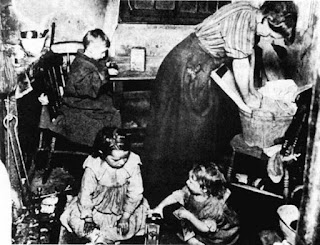The Hurricane that Changed a City
 |
| Galveston pre 1900 |
Not long ago, Texas got hit by Hurricane Harvey. The Hurricane was devastating on Texas (the city of Houston in particular) and the state is still cleaning up even now, months after. However, it was not the worst natural disaster to hit the United States, much less Texas. That award (if it can be called that) goes to the Galveston Hurricane of 1900.
For those uninformed, Galveston is a small island city located just south of Houston. It has a fairly busy port as well as a small tourist industry due to its accessible beaches, though most Texans will tell you that the beaches fall a little short of glamorous. Before 1900 though, Galveston was one of the grandest cities in Texas. It was a tourist hub as well as being a port. People from all over the United States came to the beaches of Galveston for vacation and the city was bustling. It is said that when the people of Galveston heard a storm was coming, they were unafraid because they believed their city was so strong it could handle any weather.
 |
| Men carrying away a body of a diseased citizen after the storm. |
It is not that the people were complete fools, but simply that technology of the day did not allow for great weather forecasting. Back then, weather on coastal regions was usually discovered by sailors coming into shore. The people of Galveston knew there was a storm coming, they just had no idea the magnitude. Even with these early sciences, the people tried to predict the storm. Scientist in Cuba knew the storm would head north and into the Gulf of Mexico. However, the Weather Bureau in Washington D.C. predicted it heading west and passing over Florida before drifting toward England.
The Weather Bureau, predecessor to the National Weather Service, was only 10 years old at this time. Hurricane science as a whole was a brand new concept, as stated before. This is in part what led to the massive disaster; the Hurricane of 1900 hit at the worst possible time. During these formative years in hurricane science, a lot of info was in transition as scientist were just in recent years trying to figure out how storms worked. The director of the Weather Bureau, Willis Moore, is said to have gotten so fed up with Cuban scientists coming to him with claims of an in coming hurricane hitting the Gulf of Mexico that he banned all reports coming from Cuba.
On September 8th, 1900, the hurricane hit and devastated Galveston. Estimations on the death toll range from 6,000 to upwards of 12,000. Immediately after the storm, the highest points in Galveston were 7-9 ft. above sea level. When the hurricane hit, it generated massive waves that completely rolled over the city.
Katherine Vedder Pauls, a child at the time, witnesses first hand the event and created an oral history of it, saying: "Everyone went about their usual tasks until about 11 a.m. when my brother, Jacob, and our cousin, Allen Brooks, came from the beach with the report that the Gulf was very rough and the tide very high. About half past 3. Jacob and Allen came running, shouting excitedly that the Gulf looked like a great gray wall about 50-feet high and moving slowly toward the island."
 |
| A house throne by the storm. Courtesy of the Rosenberg Library |
So much destruction was left the story became national news. Demands were made for reform in the Weather Bureau. While serious advances in hurricane science would not come about until the 1940s, the Bureau would establish international channels for better information on future hurricanes, as well as several other reforms.
Galveston, meanwhile, would take decades to recover. Where before it was considered a jewel of Texas, it quickly suffered from poor clean up and debt from paying repairs. So much death and destruction was generated that it destroyed the tourist industry on the island. It would be decades before the city would recover, and even then it has not reached the level of extravagance it once had.



Comments
Post a Comment